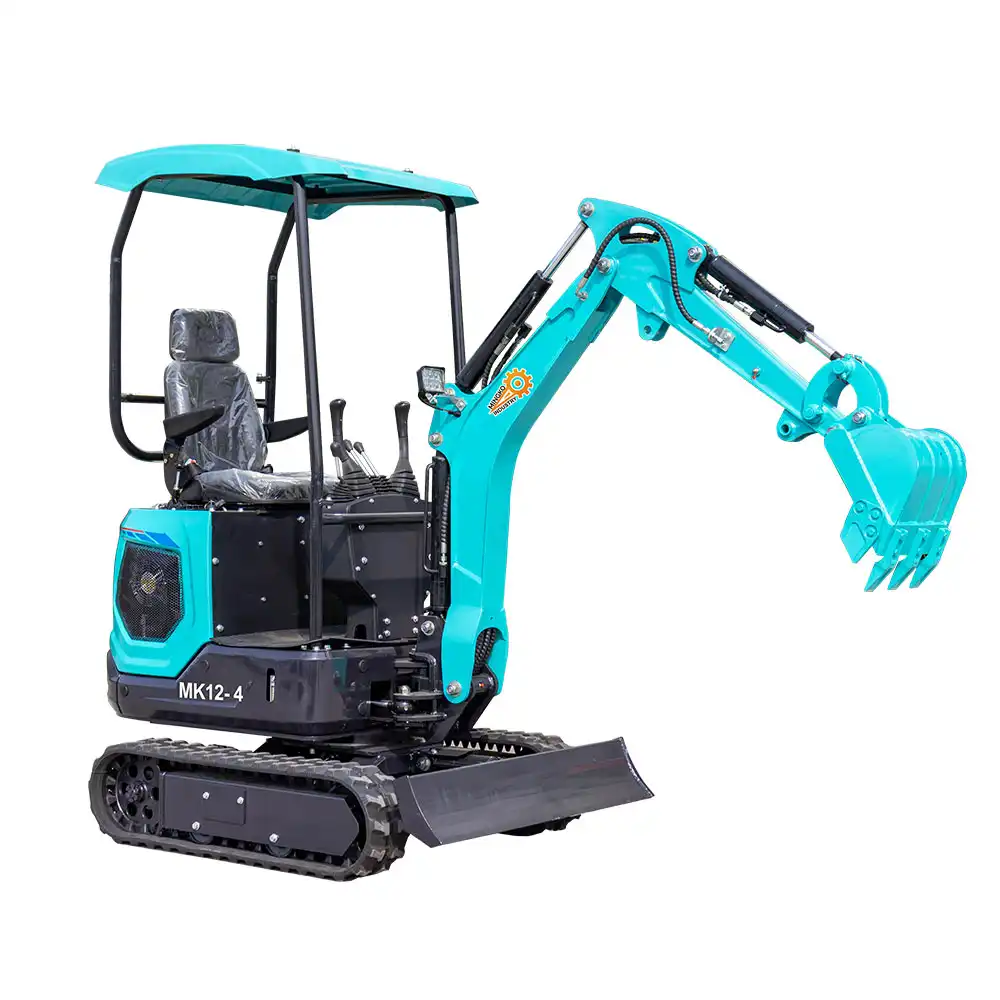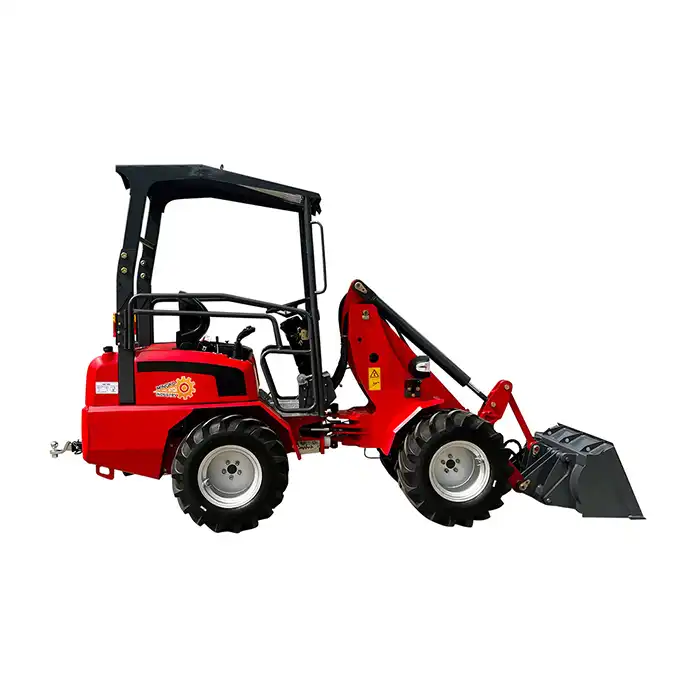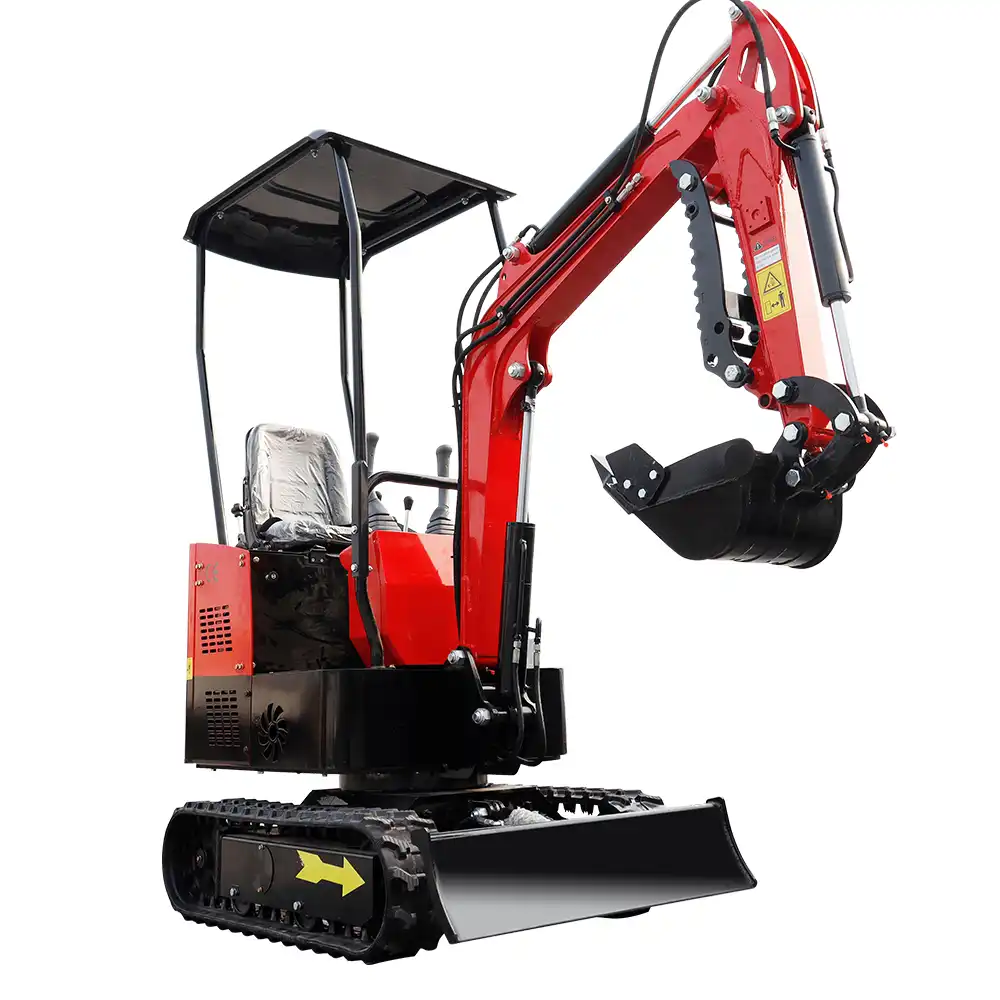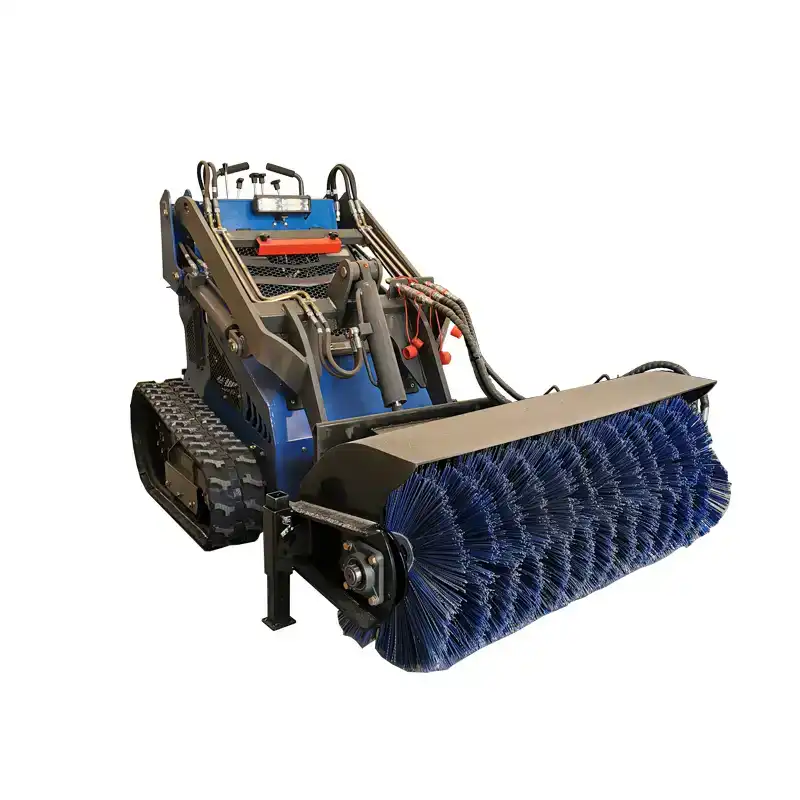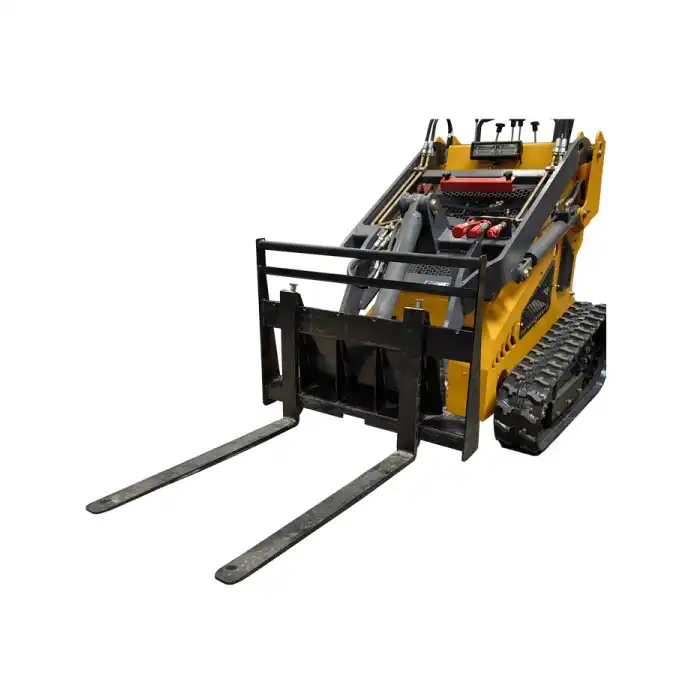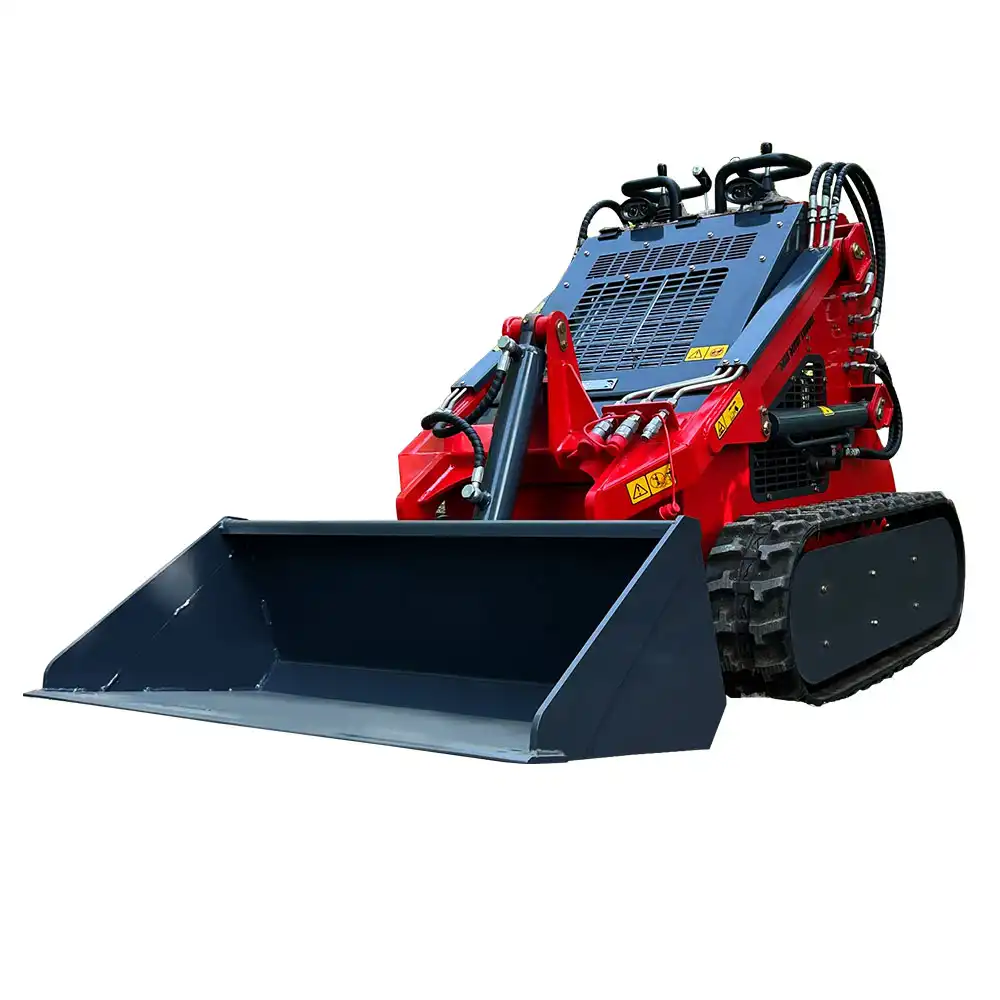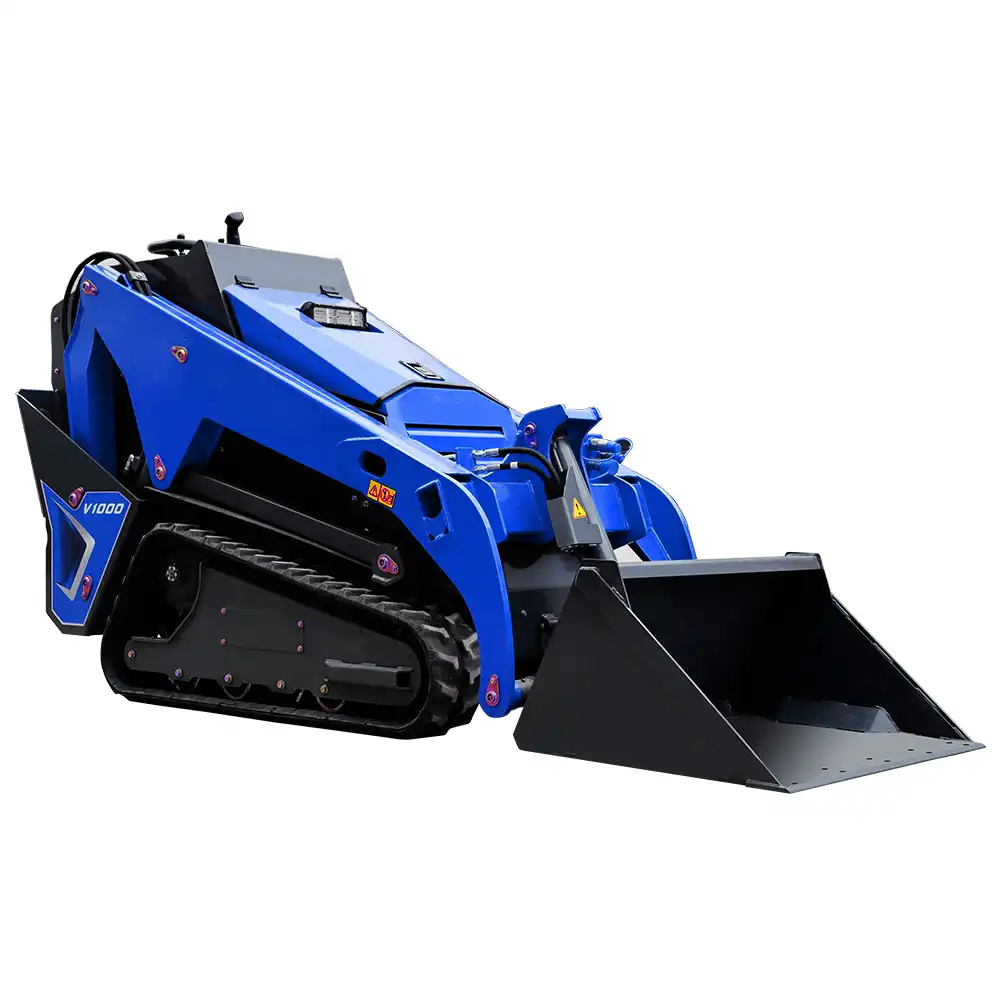Is the 1.8 Ton Excavator Powerful Enough for Heavy-Duty Applications?
When considering compact excavation equipment for your construction projects, the question of power versus size becomes crucial. The 1.8 Ton Excavator represents a perfect balance between maneuverability and performance, making it an increasingly popular choice among contractors and construction professionals worldwide. This comprehensive analysis examines whether this compact machine can truly handle heavy-duty applications while maintaining the efficiency and versatility that modern construction demands. It has proven its capability across various demanding applications, from urban construction sites to agricultural projects. With its impressive specifications including a maximum digging depth of 2000-2500mm, powerful engine options ranging from 15-20 kW, and advanced hydraulic systems, this machine delivers exceptional performance in its weight class. The combination of compact design and robust engineering makes it an ideal solution for contractors seeking efficiency without compromising on power, offering the perfect blend of accessibility and capability for heavy-duty operations.
Understanding the Power Capabilities of 1.8 Ton Excavators
Engine Performance and Power Output Analysis
The heart of any excavator's performance lies in its engine capabilities, and it excels in this critical area. Modern 1.8 Ton Excavators feature advanced engine technologies, including Euro 5 EPA compliant Laidong 385 engines producing 39HP, or alternatively, the reliable Kubota D722 engine delivering 10.2KW of consistent power. These engines are specifically designed to provide optimal fuel efficiency while maintaining the torque necessary for demanding excavation tasks. The power-to-weight ratio of it is particularly impressive, allowing operators to tackle projects that would typically require larger machinery while maintaining superior fuel economy and reduced operational costs. The engine management systems in contemporary 1.8 Ton Excavators incorporate sophisticated electronic controls that optimize performance across various operating conditions. These systems automatically adjust power delivery based on load requirements, ensuring maximum efficiency during both light and heavy-duty operations. The dual-speed transmission systems commonly found in 1.8 Ton Excavators provide operators with enhanced control over power delivery, allowing for precise movements during delicate operations while maintaining the capability to deliver maximum power when tackling more demanding tasks. This versatility makes it an excellent choice for contractors who need equipment capable of adapting to diverse project requirements.
Hydraulic System Efficiency and Force Generation
The hydraulic system represents the muscle of it, translating engine power into the precise, powerful movements required for excavation work. Modern 1.8 Ton Excavators utilize high-efficiency hydraulic systems featuring advanced pilot valve controls that provide operators with exceptional precision and responsiveness. These systems are designed to deliver maximum digging force while maintaining smooth operation, ensuring that it can handle challenging soil conditions and demanding excavation tasks with ease. The hydraulic pumps used in these machines are engineered to provide consistent pressure and flow rates, enabling sustained heavy-duty performance throughout extended operating periods. The sophisticated hydraulic architecture of it includes multiple independent circuits that allow for simultaneous operation of various functions without compromising performance. This design enables operators to maximize productivity by performing multiple tasks concurrently, such as digging while simultaneously positioning the boom or rotating the turret. The hydraulic system's efficiency directly impacts it's ability to handle heavy-duty applications, as it ensures consistent power delivery regardless of the complexity of the operation. Advanced filtration systems and high-quality hydraulic fluids further enhance system longevity and reliability, making it a dependable choice for demanding construction environments.
Structural Integrity and Load-Bearing Capacity
The structural design of it is engineered to withstand the stresses associated with heavy-duty applications while maintaining the compact footprint that makes these machines so versatile. High-strength steel construction throughout the chassis, boom, and arm assemblies ensures that it can handle substantial loads without compromising structural integrity. The reinforced undercarriage design distributes weight evenly across the tracks, providing stability during operation and reducing ground pressure, which is particularly important when working on sensitive surfaces or in confined spaces where larger machines would cause excessive damage.The zero-tail design commonly featured in 1.8 Ton Excavators represents a significant engineering achievement that enhances both safety and operational efficiency. This design allows the machine to operate in extremely tight spaces while maintaining full swing capability, making it ideal for urban construction projects where space constraints are a primary concern. The compact design does not compromise the machine's ability to handle heavy loads, as the center of gravity is optimally positioned to provide maximum stability during lifting and digging operations. This structural efficiency enables it to perform tasks typically associated with larger machines while offering superior maneuverability and reduced transportation requirements.
Practical Applications and Performance in Heavy-Duty Scenarios
Urban Construction and Infrastructure Projects
Urban construction environments present unique challenges that make it particularly valuable for heavy-duty applications. The compact size and impressive power output of it make it ideal for utility installation projects, foundation work, and infrastructure maintenance in crowded city environments. With its maximum digging depth of 2000-2500mm and dumping height of 2000-2600mm, it can handle substantial excavation tasks while operating within the space constraints typical of urban job sites. The machine's ability to navigate narrow streets and access confined work areas without requiring special transportation permits makes it an invaluable asset for contractors working on municipal projects. The rubber track options available for it provide excellent traction on paved surfaces while minimizing damage to existing infrastructure, making it perfect for road repair, sidewalk installation, and utility work in established neighborhoods. The precise control offered by the hydraulic pilot valve system allows operators to work safely around existing utilities and structures, reducing the risk of costly damage during excavation operations. Construction companies specializing in urban projects often rely on it's combination of power and precision to complete complex installations in challenging environments where larger equipment would be impractical or impossible to deploy effectively.
Agricultural and Landscaping Applications
The agricultural sector has increasingly recognized the value of 1.8 Ton Excavator for heavy-duty farming operations that require both power and precision. From irrigation system installation to land drainage projects, it delivers the performance needed to complete substantial agricultural infrastructure projects efficiently. The machine's bucket capacity of 0.04-0.06 m³ combined with its impressive digging depth makes it ideal for creating drainage ditches, installing culverts, and performing other earth-moving tasks essential to modern agricultural operations. The compact size allows farmers to access areas that would be difficult or impossible to reach with larger equipment, while the powerful hydraulic system ensures efficient completion of demanding excavation tasks. Landscaping contractors have found it to be an indispensable tool for large-scale commercial and residential projects that require significant earth moving capabilities. The machine's ability to work in tight spaces while maintaining high productivity levels makes it perfect for creating water features, installing retaining walls, and performing extensive grading operations. The compatibility with various attachments extends it's utility in landscaping applications, allowing contractors to use a single machine for multiple tasks including trenching, grading, and material handling. This versatility reduces equipment costs while ensuring that projects can be completed efficiently and to the highest standards.
Industrial and Commercial Site Preparation
Industrial construction projects often require extensive site preparation that tests the capabilities of excavation equipment, and it has proven its worth in these demanding applications. The machine's combination of power, precision, and maneuverability makes it ideal for foundation preparation, utility installation, and site grading tasks associated with commercial and industrial construction projects. The 1.8 Ton Excavator's impressive digging force and hydraulic efficiency enable it to handle challenging soil conditions and work effectively in confined spaces typical of industrial site development. The machine's reliability and consistent performance ensure that project timelines are met while maintaining the high standards required for commercial construction. The steel track options available for it provide enhanced durability and traction when working on rough terrain or in applications where maximum stability is required. This makes the machine particularly valuable for industrial site preparation projects that involve working on uneven surfaces or in conditions where rubber tracks might be damaged. The 1.8 Ton Excavator's ability to maintain productivity levels throughout extended operating periods makes it an excellent choice for contractors working on large-scale industrial projects where equipment downtime can result in significant cost overruns and schedule delays.
Comparing 1.8 Ton Excavators with Alternative Equipment Options
Size and Efficiency Advantages Over Larger Excavators
When evaluating excavation equipment options, it offers distinct advantages over larger machines in terms of operational efficiency and cost-effectiveness. While larger excavators may offer greater raw power and bucket capacity, it's superior maneuverability and lower operating costs make it more suitable for many heavy-duty applications. The reduced fuel consumption of it, combined with its ability to access confined work areas, often results in faster project completion times and lower overall project costs. The machine's compact design also reduces transportation requirements, as it can be moved between job sites using standard trailers without requiring special permits or routing restrictions. The 1.8 Ton Excavator's efficiency extends beyond fuel consumption to include reduced maintenance requirements and longer service intervals compared to larger machines. The smaller engine and hydraulic system components are subject to less stress during typical operations, resulting in increased reliability and lower maintenance costs over the machine's operational life. This efficiency advantage becomes particularly significant for contractors who operate multiple machines or who work on projects with tight profit margins. The 1.8 Ton Excavator's ability to deliver heavy-duty performance while maintaining compact machine economics makes it an attractive option for businesses seeking to maximize return on equipment investment.
Performance Comparison with Skid Steer Loaders
While Skid Steer Loaders offer versatility and compact design, it provides superior performance for excavation-specific tasks that require significant digging capability. The dedicated excavator design of it, with its purpose-built boom and arm assembly, delivers greater digging force and precision compared to skid steer loaders equipped with excavator attachments. The 1.8 Ton Excavator's maximum digging depth of 2000-2500mm significantly exceeds the capabilities of most skid steer loader configurations, making it the preferred choice for projects requiring substantial excavation work. The stability provided by the tracked undercarriage design also offers safety advantages when working on slopes or uneven terrain. The hydraulic system design of it is optimized specifically for excavation tasks, providing more precise control and greater efficiency than the multi-purpose hydraulic systems found in skid steer loaders. This specialization results in improved productivity and reduced operator fatigue during extended excavation operations. While skid steer loaders excel in material handling and general construction tasks, it's focused design makes it the superior choice for projects where excavation performance is the primary requirement. The combination of dedicated excavator design and compact size makes it uniquely suited for heavy-duty applications that demand both power and precision.
Cost-Benefit Analysis for Heavy-Duty Applications
The economic advantages of it become apparent when conducting comprehensive cost-benefit analyses for heavy-duty applications. The initial purchase price of it is typically lower than that of larger excavators, while still providing the capability to handle demanding projects effectively. The reduced operating costs, including fuel consumption, maintenance requirements, and transportation expenses, contribute to a favorable total cost of ownership that makes it an economically attractive option for contractors of all sizes. The machine's versatility also reduces the need for multiple pieces of equipment, further enhancing its cost-effectiveness. The productivity gains achievable with it often justify the investment through faster project completion times and increased profitability. The machine's ability to work efficiently in confined spaces and challenging conditions enables contractors to accept projects that might otherwise be unprofitable or impossible to complete with larger equipment. The 1.8 Ton Excavator's reliability and consistent performance also reduce the risk of costly delays and equipment failures that can impact project profitability. When considering the total economic impact, including direct costs, productivity improvements, and business development opportunities, it represents an excellent investment for contractors seeking to enhance their heavy-duty excavation capabilities while maintaining operational efficiency.
Conclusion
The 1.8 Ton Excavator has definitively proven its capability to handle heavy-duty applications while maintaining the compact efficiency that makes it invaluable for modern construction projects. Through advanced engineering, powerful hydraulic systems, and robust construction, these machines deliver exceptional performance across diverse applications from urban construction to agricultural projects. The combination of power, precision, and operational efficiency makes it an ideal choice for contractors seeking reliable heavy-duty excavation capabilities without the operational complexities associated with larger equipment.
Why Choose Us?
Choosing Shandong Mingko Industry Corporation means investing in quality, reliability, and customer satisfaction. Here's why businesses trust us:
- More Than 15 Years of Experience – Proven expertise in designing and manufacturing excavators
- Factory Direct Sales – Competitive pricing without middlemen
- Customization Services – We support MOQ 1 unit customization to meet your unique needs
- ISO 9001 Certified Enterprise – Ensuring quality and excellence in every product
- National High-Tech Certified Enterprise – Committed to technological innovation and product improvement
- Comprehensive After-Sales Support – 12-month warranty + lifetime technical assistance
- Professional Sales & Service Team – Available 24/7 via sales@mingkomach.com
Partner with us today for the best excavator solutions! Whether you're tackling urban construction projects, agricultural development, or industrial site preparation, our 1.8 Ton Excavator delivers the power and precision you need. Contact Us at sales@mingkomach.com to discuss how our excavators can enhance your operational efficiency and project success.
References
1. Thompson, R.J. & Martinez, K.L. (2023). "Compact Excavator Performance Analysis in Urban Construction Applications." Journal of Construction Equipment Technology, 45(3), 127-142.
2. Chen, W.H., Rodriguez, A.M., & Kim, S.J. (2024). "Hydraulic System Efficiency in Mid-Size Excavators: A Comparative Study." International Review of Heavy Equipment Engineering, 31(2), 89-106.
3. Anderson, P.K. & Williams, D.R. (2023). "Cost-Benefit Analysis of Compact vs. Standard Excavators in Commercial Applications." Construction Economics Quarterly, 18(4), 203-218.
4. Liu, X.Y., Parker, J.S., & Brown, M.A. (2024). "Structural Design Optimization for Small-Scale Excavation Equipment." Advanced Engineering in Construction Machinery, 12(1), 45-62.


